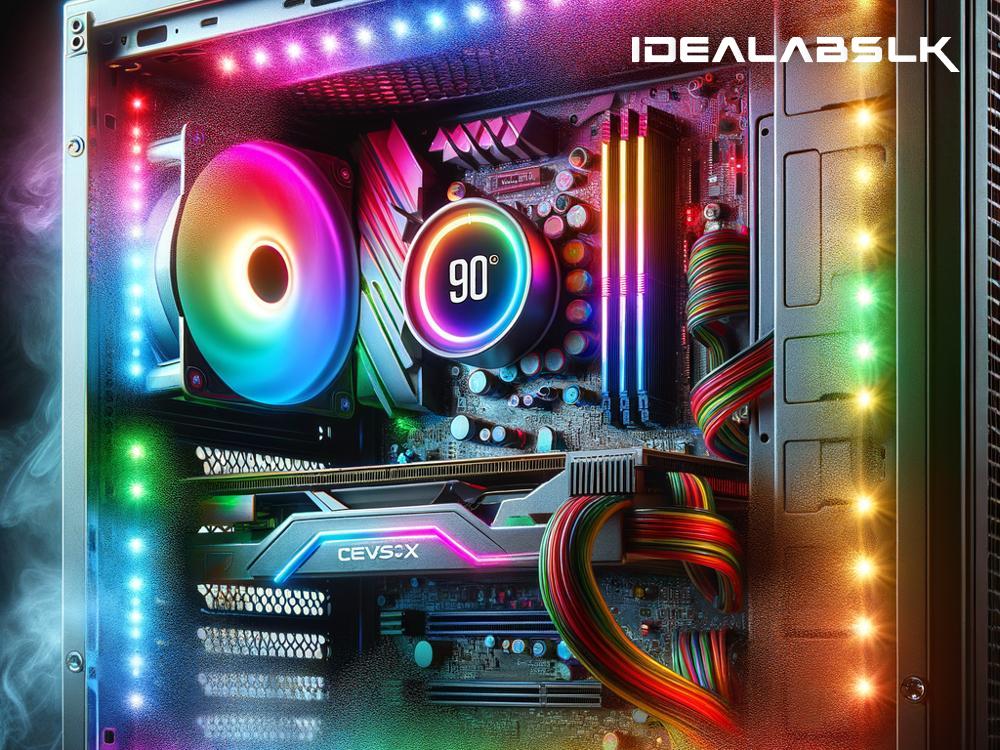How to Solve 'PC Overheats When Gaming' - A Simple Guide
Are you facing the annoying problem of your PC getting too hot while you're in the middle of an epic gaming session? You're not alone. Many gamers encounter this issue, but the good news is that it's usually fixable with a few adjustments and some basic maintenance. Overheating can be harmful to your computer's health, so it's crucial to address it. Below, we'll walk through some simple steps to help you keep your PC cool and your games running smoothly.
1. Check and Clean Your Fans
The first step is to check your computer's fans. These are your first line of defense against overheating. Your PC should have at least one fan on the case, and one on the CPU, but gaming PCs often have more. Dust and debris can clog these fans over time, reducing their effectiveness.
Solution: Turn off your PC and unplug it. Open your computer's case and use a can of compressed air to gently blow out any dust from the fans and air vents. Make sure all fans are spinning properly when you turn your PC back on. If any are not, it might be time to replace them.
2. Improve Your Room's Ventilation
Sometimes the issue isn't inside your PC but rather the environment it's in. Poor room ventilation can cause your PC to overheat quickly, especially during long gaming sessions.
Solution: Ensure your gaming area is well-ventilated. Move your PC away from walls and out of tight spaces. Opening a window or using a room fan to improve air circulation can also help.
3. Replace Thermal Paste
The thermal paste between your CPU and its cooler can dry out over time, becoming less effective at transferring heat.
Solution: If you're comfortable opening up your PC, consider replacing the thermal paste. This involves carefully removing the CPU cooler, cleaning off the old paste, and applying a new, pea-sized amount of thermal paste before reattaching the cooler. This can significantly improve cooling efficiency.
4. Upgrade Your Cooling System
If you’re finding that cleaning your fans and applying new thermal paste isn’t quite cutting it, it might be time to upgrade your cooling system. This is especially true for gaming PCs that generate a lot of heat.
Solution: Consider adding more or better-quality fans to your case. Alternatively, you might want to invest in a liquid cooling system. Liquid coolers are generally more effective than fans alone, though they’re also more expensive and somewhat more complex to install.
5. Adjust Your Gaming Settings
High game settings can put a lot of strain on your PC, causing it to heat up quickly. If you've tried improving your PC's cooling and it's still overheating, your game settings might be too high.
Solution: Try lowering the resolution, graphics quality, or other settings in your games. It might not be ideal, but finding a balance that keeps your PC cool while still providing an enjoyable gaming experience is key.
6. Monitor Your PC’s Temperature
Keeping an eye on your PC's temperature can help you spot overheating before it becomes a problem. Various free tools are available that allow you to monitor your CPU and GPU temperatures in real-time.
Solution: Download and install a temperature monitoring application. Keep it running while you game. If you notice your temperatures reaching unsafe levels (usually above 80-90°C, though this can vary), it’s a sign you need to take immediate action to cool down your PC.
7. Keep Your PC Updated
Finally, ensure your PC’s software is up to date. This includes your operating system, drivers, and the game itself. Updates can include improvements that might help your PC run cooler.
Solution: Regularly check for and install any available updates. Keeping your system updated can also improve performance and security along with potentially lowering temperatures.
In conclusion, solving PC overheating issues when gaming often involves a mix of cleaning, upgrading, and tweaking settings. By taking these steps, not only can you improve your gaming experience but also extend the lifespan of your PC. Remember, regular maintenance is key to keeping those temperatures down, so don't wait until your PC starts overheating. Happy gaming and stay cool!

